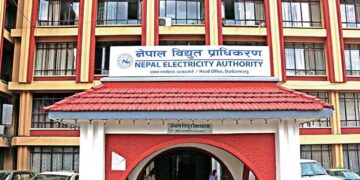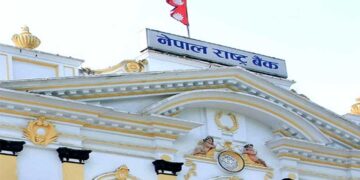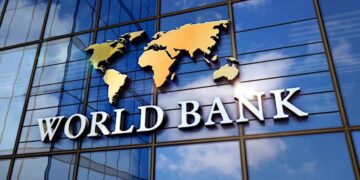The import of petroleum products has gone down during the last fiscal year 2022/23. According to a trade statistics of the Department of Customs, the country imported petroleum products worth Rs. 300.28 billion in the last fiscal year.
The import of petroleum products was almost 7 per cent down in the last fiscal year as compared to previous fiscal year 2021/22. Petroleum products worth Rs. 322 billion had been imported in the fiscal year 2021/22.
The consumption of petroleum products has declined during the last fiscal year, resulting in a decrease in their import. The consumption of petroleum products, especially diesel, has decreased significantly in the country last fiscal year due to significant price hikes of petroleum products, slow pace of development works and improvement in electricity supply in the country, said Manoj Kumar Thakur, spokesperson of Nepal Oil Corporation.
According to the statistics, about 1.41 million kilolitres of diesel worth Rs. 153.76 billion and 680,807 kilolitres of petrol worth Rs. 66.84 were imported during the last fiscal year while in the previous fiscal year, 1.75 million kiloliters of diesel and 738,536 kiloliters of petrol were imported.
The county had spent Rs. 168.23 billion for the import of diesel and Rs. 71.38 billion for the import of petrol in the fiscal year 2021/22.The amount for the import of diesel has decreased by 8.6 per cent, and petrol by 6.36 per cent during the last fiscal year as compared to the previous fiscal year.
“In the past, sales of diesel and petrol had been high in Nepali side of Nepal-India border due to cheaper rate in Nepal than India. But in the last fiscal year, sales decreased as fuel was more expensive in Nepal compared to India. Due to this, the overall import of fuel has dipped,” he said.
The price of petrol had reached Rs. 199 per litre and diesel Rs. 192 per litre. But price of petrol has dropped to Rs. 173 per litre and diesel to Rs. 153 per litre now.
Similarly, the country imported aviation fuel worth Rs. 20.07 billion and kerosene worth Rs. 1.46 billion in the last fiscal year.
However, import of aviation fuel increased in the last fiscal year as compared to previous fiscal year. The country imported aviation fuel worth Rs. 15.15 billion in the previous fiscal year 2021/22.
He said that improvement in the electricity supply in the recent years has also contributed to decrease in the consumption of diesel in the industrial sector.
Cooking gas consumption drops
The consumption of liquefied petroleum gas (LPG) decreased in the last fiscal year 2022/23.
The statistics showed that the import of LPG was reduced by 11.28 per cent in the last fiscal year as compared to previous fiscal year.
Around 514,340 tonnes of LPG worth Rs. 58.15 billion was imported in the last fiscal year while 535,865 tonnes of LPG worth Rs. 65.55 billion had been imported in the previous fiscal year.
According to deputy director of NOC Thakur, the consumption of LPG has decreased in the country due to use of electric stoves, especially in urban areas.
“With the improvement in the supply of electricity, the consumers are attracted towards the use of electric stoves which contributed to reduction in the import of cooking gas,” he said.
According to Thakur, the closure of restaurants and decline in their business caused by economic slowdown was another factor behind the reduction in the consumption of cooking gas.
He further said that it was imperative to promote the use of electric vehicles and electric stoves for increasing consumption of electricity in the country and save huge amounts of money to be spent for the import of fossil fuels.
The use of electric stoves and electric vehicles has also been increasing in the country over the last two years.











